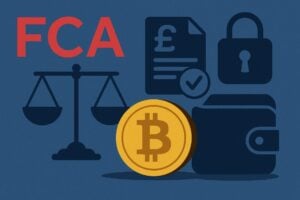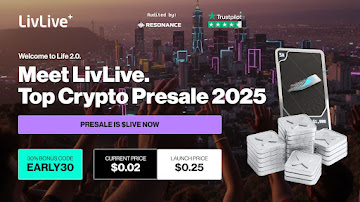FCA, crackdown on crypto: Consumer Duty and custody rules

The regulation of cryptocurrencies in the United Kingdom enters a decisive phase.
The Financial Conduct Authority (FCA) has initiated a consultation to set minimum standards on transparency, consumer protection, and digital custody, in order to strengthen market confidence and ensure safer operations for exchanges, wallets, and crypto service providers.
The consultation was published on May 2, 2025, and opened a public discussion on operational responsibilities and safeguarding requirements for digital assets (CoinDesk). The goal is to make the rules clearer without hindering the sector’s evolution.
According to the data collected by our regulatory monitoring team, in the first weeks following the publication, the feedback received from professionals and operators focused mainly on custody, incident reporting, and insurance requirements.
Industry analysts note that many responses require technical clarifications on multi-sig, asset segregation, and recovery protocols, as well as proposals to scale obligations based on the size of the operator.
FCA Consultation: What’s on the Table
The consultation document clarifies how to apply rules inspired by traditional finance to the crypto perimeter, balancing innovation, market integrity, and user protection.
In this context, the goal is to introduce minimum standards for all firms under the supervision of the FCA, an essential step for a more transparent and secure sector, with measurable benefits for users.
The proposed pillars
- Obligations towards consumers: assessment on the extension of the Consumer Duty – a requirement that mandates companies to provide “good outcomes” – to crypto services, with outcomes for users that are traceable and verifiable.
- Operational resilience: introduction of continuity requirements, incident response plans, and periodic testing to ensure the operational stability of platforms even in adverse scenarios.
- Financial Crime Prevention: strengthening AML/CFT measures through more stringent transaction monitoring and structured counterpart checks.
- Custody and safeguarding: definition of operational methods for the segregation of client assets, secure management of private keys, recovery protocols, and adequate insurance coverage.
- Market integrity: introduction of measures to prevent market abuse, manipulation, and insider trading on tokens, with dedicated surveillance mechanisms.
Application of Consumer Duty to crypto: status of the consultation
The FCA is considering whether to make the Consumer Duty fully applicable to platforms, brokers, custodians, and wallet providers.
The adoption of this requirement would lead to clear and verifiable outcomes: more transparent communications, products suitable for the target audience, and continuous support throughout the service lifecycle. It should be noted that the scope of application will be defined carefully to avoid ambiguities.
Additionally, companies will need to demonstrate that they have reduced the risk of avoidable harm to clients by assessing the suitability of more complex features, such as leverage and staking, and intervening promptly to correct any harm or undesirable outcomes. That said, controls must be proportionate to the risk and supported by documented evidence.
Impact on Market and International Coordination
The British move fits into a context of increasing regulatory convergence. With MiCA fully operational in the EU, London aims to establish comparable standards to attract operators, without compromising user protection.
Simultaneously, the FCA is engaging in dialogue with U.S. authorities, in a process of cross-border cooperation that should facilitate the exchange of information on critical issues such as token listing, the travel rule, and incident management (CoinDesk). Indeed, international coordination becomes a key factor in reducing arbitrage and misalignments.
What changes concretely for companies and users
In practice, the consultation anticipates the introduction of more stringent operational obligations. By way of example, and with practical implications on the day-to-day:
- Transparency: companies must clearly communicate the risks, fees, and potential conflicts of interest, supported by comprehensibility tests and simple language.
- Product suitability: market target controls will be imposed, limits for high-risk features, and “friction” mechanisms for more vulnerable users.
- Custody: standards will be defined for on-chain/off-chain segregation, introduction of multi-sig key usage, and recovery procedures with independent audits.
- Incident reporting: companies will be required to promptly communicate any incidents to users and authorities, accompanied by verifiable remediation plans.
- Data governance: rigorous data quality management, complete transaction traceability, and near real-time monitoring will be required.
Technical Details for Adjustment
- Minimum corporate standards: implementation of operational policies, risk limits, performance metrics, and periodic reporting to the FCA, with clearly assigned responsibilities.
- Secure custody: strengthening access controls, segregation of client funds, resilience testing, and adequate insurance coverage, even for stress scenarios.
- Market abuse: introduction of rules on data integrity, surveillance of suspicious volumes, and effective management of conflicts in listing and market making.
Timeline: what happens now
- Consultation: the phase is currently underway; the document outlines the guiding principles and invites stakeholders to submit feedback.
- Collection and analysis of comments: the FCA will review the responses received and, if necessary, update the proposals.
- Final rules and transition period: once the regulations are defined, an adjustment window for operators will be announced.
Note on dates: the consultation document does not specify certain deadlines and does not confirm the removal of some existing bans, such as the ban on retail sale of ETNs for cryptocurrencies.
In a previous report, the FCA announced its intention to lift this ban starting from October 2025, a move supported by numerous specialized publications (CoinDesk). The timelines will be updated according to the official calendar published by the FCA.
Why it matters for businesses and investors
- Regulatory clarity: the definition of clear rules reduces uncertainty and promotes responsible investments, even in a phase of rapid change.
- Convergence with the EU: comparable standards facilitate cross-border operations and coordinated supervision.
- Compliance costs: although an increase in costs for audits and surveillance procedures is expected, the consultation does not provide official estimates in this regard.
Quotes and Context
According to David Geale, executive director of the FCA for payments and digital finance, the new rules do not eliminate the intrinsic risks of cryptocurrencies, but create a regulatory framework aimed at ensuring responsible business practices and better outcomes for customers (FCA – Speeches and statements). The consultation focuses on both innovation and user protection, with an outcome-oriented approach.
Quick Comparison: UK vs EU (MiCA)
- EU/MiCA: the single regime imposes specific requirements for crypto issuers and service providers, with standards on reserve, governance, and transparency.
- UK/FCA: The British approach is “outcomes-based”, with particular emphasis on Consumer Duty, operational resilience, and market integrity.
- Point of contact: innovative elements concern custody, asset segregation, and the need to provide clear information to the client.
Quick FAQ for Consumers
What changes for those using a UK-regulated exchange?
Users will benefit from greater transparency on risks and costs, along with stricter anti-abuse controls and verifiable minimum standards for fund custody. In other words, more clarity and stronger safeguards.
Does the Consumer Duty mean guaranteed reimbursement?
No. The Consumer Duty aims to ensure better outcomes for customers through corrective interventions, while not completely eliminating risk.
Will cryptocurrencies be “safe” by definition?
No. Regulation aims to reduce avoidable risks and improper practices, but the volatility and intrinsic risk of digital assets remain.
Analysis: What’s at Stake
The path taken by the United Kingdom, with an outcomes-oriented approach and custody, could establish a new international standard.
If calibrated correctly, the new regulatory framework will reduce incentives for regulatory arbitrage and reward the strongest operators.
However, an excessively high compliance burden could penalize smaller players, with possible repercussions on competition and innovation. Yet, greater clarity of rules tends to favor more reliable markets in the medium term.
Conclusion
The FCA consultation represents a concrete step towards integrating the crypto market into the traditional regulatory framework without stifling innovation.
The scope and timing of the potential application of the Consumer Duty to the crypto sector and the final set of custody rules remain to be defined, elements that will influence the strategies of operators and investors in the United Kingdom and, hopefully, will also impact the European regulatory debate. In summary, a balance between user protection and sustainable market development will be crucial.
You May Also Like

Why Bitcoin Loses to Gold in 2025

Here’s Why Community Members Leaving Pepe Coin Are Rushing Into LivLive ($LIVE) This Week
